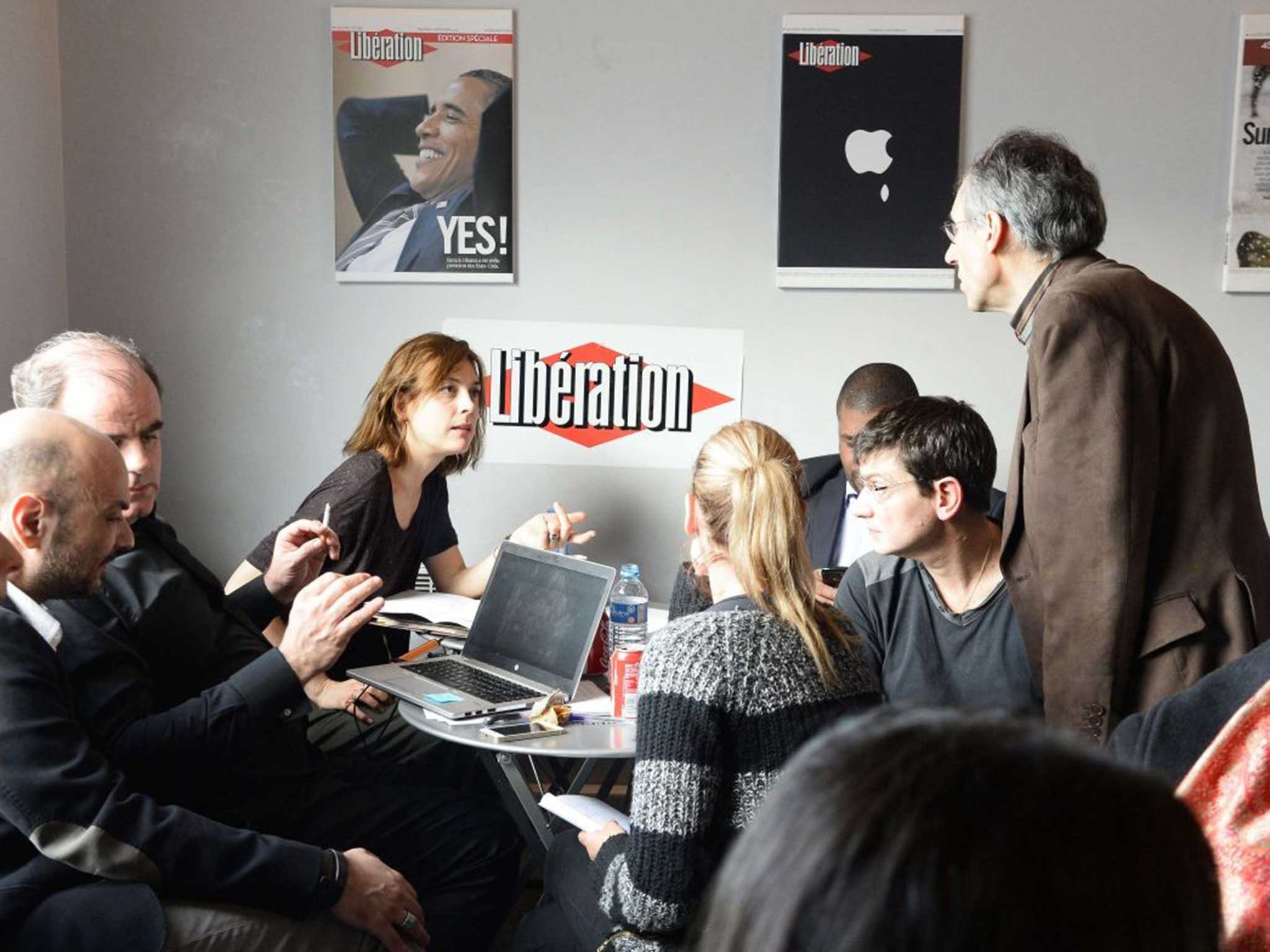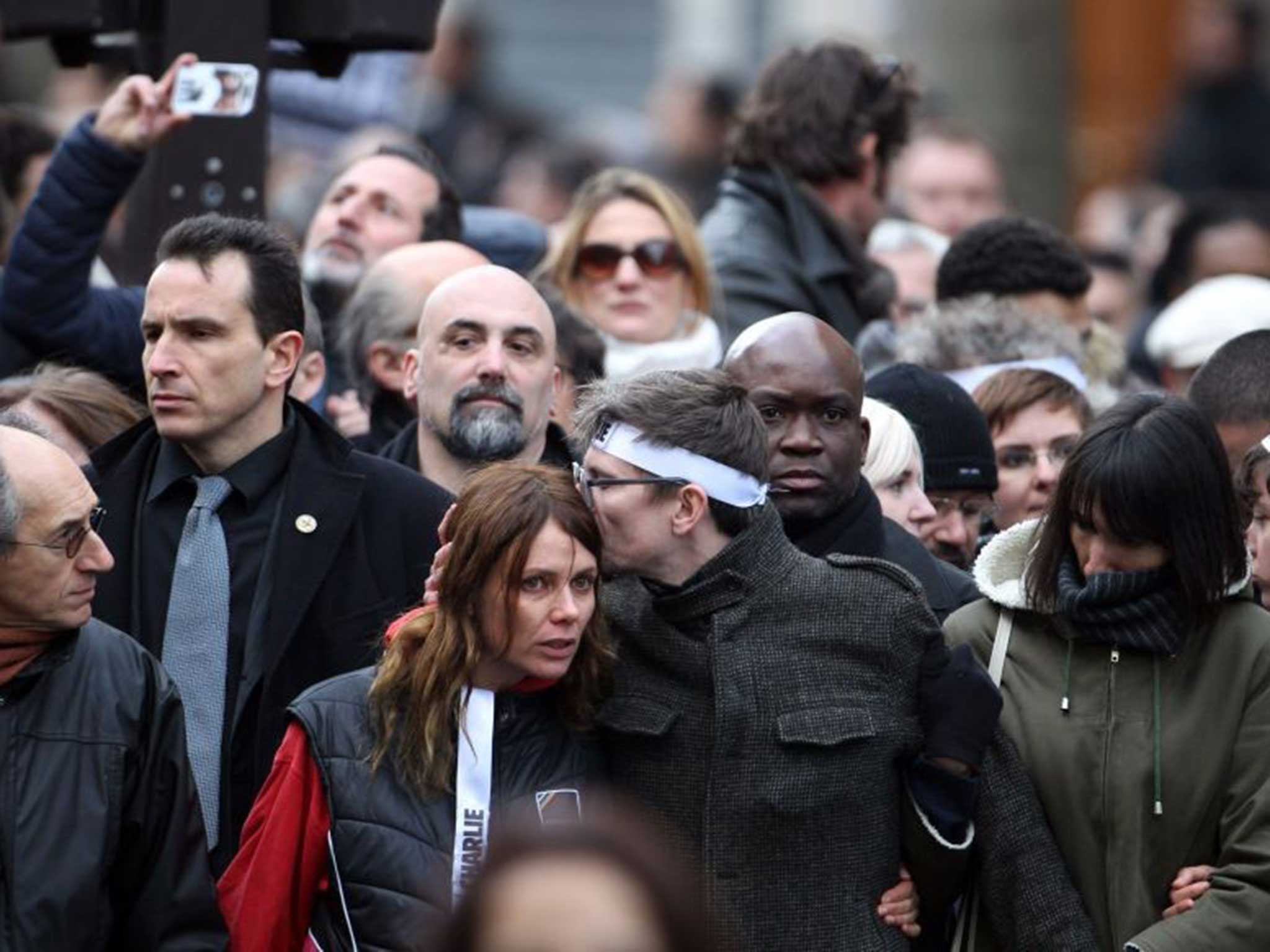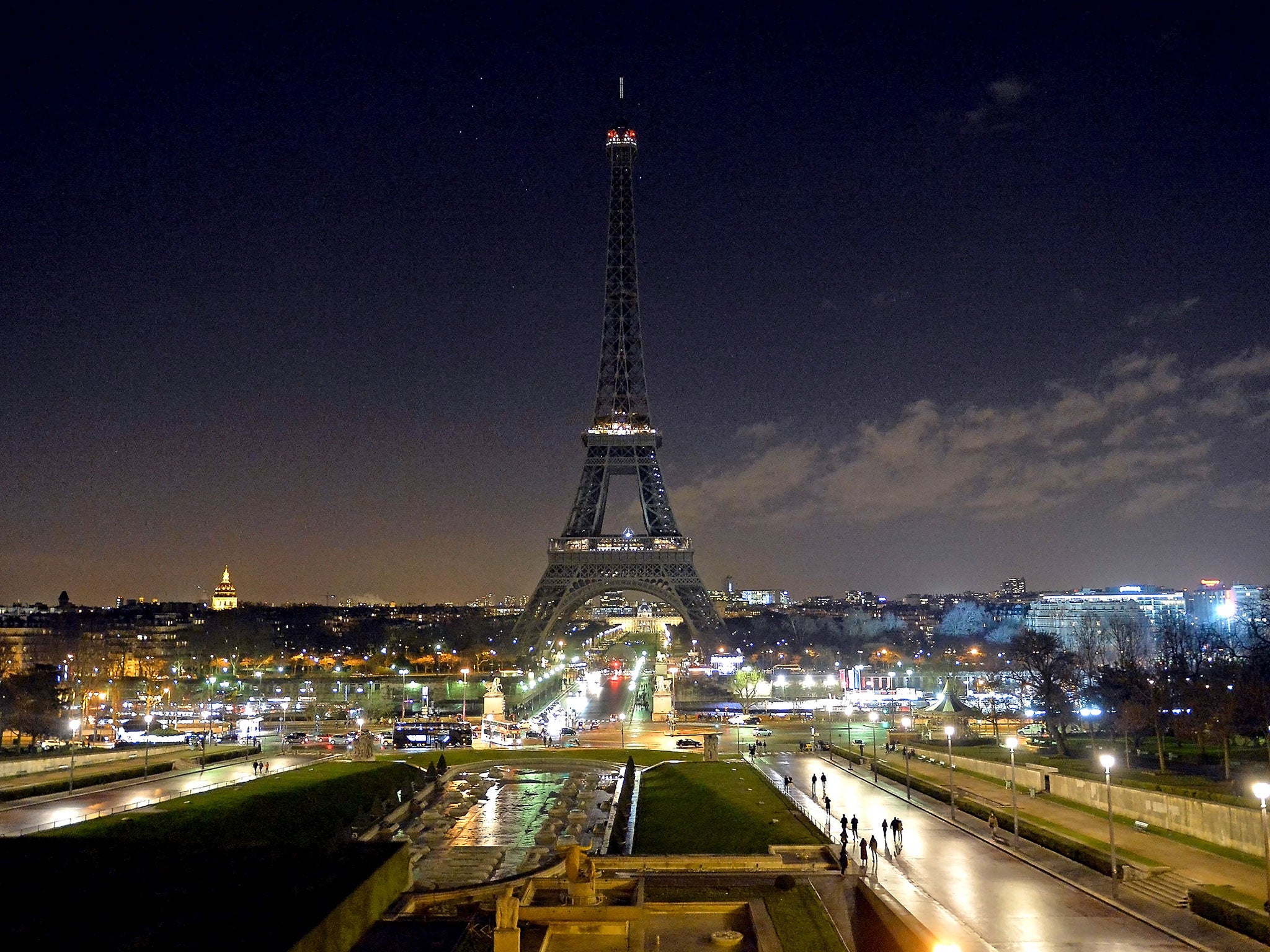Charlie Hebdo cover: Free speech debate stirred again as magazine unveils cover showing cartoon of Prophet Mohamed
The French newspaper Liberation, which is hosting surviving staff from the magazine, unveiled the front cover on its Twitter feed last night

Your support helps us to tell the story
From reproductive rights to climate change to Big Tech, The Independent is on the ground when the story is developing. Whether it's investigating the financials of Elon Musk's pro-Trump PAC or producing our latest documentary, 'The A Word', which shines a light on the American women fighting for reproductive rights, we know how important it is to parse out the facts from the messaging.
At such a critical moment in US history, we need reporters on the ground. Your donation allows us to keep sending journalists to speak to both sides of the story.
The Independent is trusted by Americans across the entire political spectrum. And unlike many other quality news outlets, we choose not to lock Americans out of our reporting and analysis with paywalls. We believe quality journalism should be available to everyone, paid for by those who can afford it.
Your support makes all the difference.The debate over the freedom of expression in the wake of the deadly attack on the offices of Charlie Hebdo has been reignited after the satirical magazine released an image of this week's front cover showing a cartoon of the Prophet Mohamed.
The French newspaper Liberation, which is hosting surviving staff from the magazine, unveiled the front cover on its Twitter feed last night. The weekly magazine is expected to publish up to three million copies of the issue in various languages.
Its illustration features the sign “Je suis Charlie” (I am Charlie), a hashtag used hundreds of thousands of times across the world in messages of solidarity with victims of the attack.
The phrase “Tout est Pardonne” (All is Forgiven) is written across the top of the cartoon.
Among the many voices arguing the cartoon's publication is a matter of exercising the right to free speech was Boris Johnson, who suggested Charlie Hebdo had “no choice” but to print the cover following the unity marches in France and defences of press freedoms in the wake of the attacks.
The London Mayor told the BBC: “You cannot have a march through the streets of Paris attended by 46 world leaders, four million people, climaxing with a shout of 'We are not afraid' and then not print the central object of contention.
“You may not agree with what they have done, you may be offended by what they have done, but you should defend their right to publish it.”
Deputy Prime Minister Nick Clegg defended the cover as part of an “ideological struggle” to maintain a free society, saying citizens must have the right to offend.
“I'm not sure I'm going to buy it but I would defend the right to publish a cover like that.
“I might buy it but whether I buy it or not is not really the issue - the issue is do we live in a society where people can publish things on the covers of their magazines or their newspapers which may be offensive to some parts of society but where we nonetheless defend the right to offend.”
Piers Morgan also took to Twitter to defend the individual rights of newspapers to choose whether they do or do not republish the cartoons, saying free speech is embodied in having the right to make that choice.
Morgan, a former British newspaper editor, wrote on Twitter: “It’s down to each individual media organisation whether they publish new Charlie Hebdo cover. Free speech means choice, not compulsion.”

But not everyone agrees that that publishing images of Mohamed is an example of promoting values of freedom of speech.
The Huffington Post's political director Mehdi Hasan said that while the attack was an “an inexcusable and merciless murder of innocents”, he questioned whether it was “really a 'bid to assassinate' free speech (ITV's Mark Austin), to “desecrate” our ideas of 'free thought' (Stephen Fry)?”
He added: “I disagree... that the right to offend comes with no corresponding responsibility; and I do not believe that a right to offend automatically translates into a duty to offend.”
The #jesuischarlie hashtag also received a backlash of its own with calls of “I am not Charlie” from around the world from Muslims who decried the attacks on Charlie Hebdo but found printing depictions of the Prophet Mohamed offensive.
One user wrote: “I pray for Charlie but I am not Charlie because I don't insult anyone then hide behind ‘freedom of speech’.”
Another joined the many who chose instead to show solidarity with the Muslim police officer killed during the attack with the post: “I am not Charlie, I am Ahmed the dead cop. Charlie ridiculed my faith and culture and I died defending his right to do so.”

Meanwhile, Omer El-Hamdoon, from the Muslim Association of Britain, said the love of the Prophet is a necessary part of the faith for the two billion Muslims across the globe.
“We do believe in freedom of speech but we think the notion of absolute freedom of speech doesn't exist,” he said.
Mr El-Hamdoon said there are still some “taboos”, adding: “We think there should be some sort of sensibility and good taste... and to not offend people for the sake of offending them.”
Earlier, Charlie Hebdo’s lawyer Richard Malka told French radio that the new issue would “obviously” feature cartoons of the Prophet Mohamed. He told France Info radio: “We will not give in. The spirit of 'I am Charlie' means the right to blaspheme.”